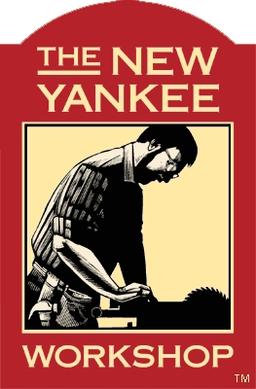“Today we’re gonna make an entire dream house for only $0.17. So to start with, let’s go outside and see what we can find just laying around.”
grabs $47,000metal detector, hops in a $60k 4x4 with clear product placement labels in every shot, two minutes of time-lapse of someone wandering around aimlessly while apparently looking for things
“Alright so we found a couple old glass bottles that can be washed out and made into a rustic display piece, and if you follow me over here you’ll never guess what I found. That’s right, its 147 acres of forested land with a 6 bedroom, 2.5 floor cabin and small pond, all with blank ownership forms! And with just a couple million graciously donated by my parents, we have all we need!”
" this just goes to show all you need to do to accomplish your dreams is get your hands dirty and do a little hard work."
filler for ad revenue
" Anyway thanks for watching, this episode was sponsored by that game company you hate and can never escape ads for! "
2.5 floors? Is that how they describe lofts or something?
I live in a hilly area; here a 1.5 floor dwelling is built into a hillside and basically has two floors on one end and one floor on the other end.
Don’t forget the plainer, 6ft vices, 14in miter, industrial table saw, ceiling vacuum, 10k sqft working space, chisels, and time.
Oh and the pallet that isn’t covered in grime and weathered.
It’s like those “I turned this piece of cracked waste wood into this fantastic resin table” videos.
The many buckets of resin in itself costs thousands. And they only passingly mention that the resin was sponsored.
You see something similar on metalworking videos: “I just used this scrap piece of steel/brass/copper/aluminum I had laying around”. Conveniently leaving out the fact that it’s hundreds of dollars of raw material.
To be fair the scrapbin in a Metall workshop thats been running for some time is usually pretty full and has some nice pieces. In production it’s often the case that you have to be carefull not to keep to much junk. (Source: professional metallworker)
For me it was more the video “We build this wonderful (some totally expensive wood) box for (absolutely small money)” - and the key point was that he had a large enough cutoff of said expensive wood lying around from a previous project, and all he needed to purchase was some felt and hinges.
“I just had this 4 foot slab of walnut laying around”
deleted by creator
I’m not sure there’s another tool people spend more time on Youtube excusing themselves for using. Just imagine:
“Now on this project I am going to be using my palm sander. Now you don’t have to have a palm sander, you can get pretty good results sanding by hand. But since I do have a palm sander, I’m going to use it.”
If I was running a commercial shop churning out furniture for retail sale, I might buy something like a Domino. The time it saves over a router table or dowel jig will pay for itself if it means you can build 10 chests-of-drawers in a month instead of 9.
In my home shop, which is a 10x12 shed in which I make stuff for me and my family, thinking about maybe opening a little Etsy store…I ain’t got room for the box it comes in. I legitimately struggled to find a place to put some sandpaper I bought the other day.
That’s one of the reasons why I like Chrisfix’s videos.
He does take the time to show you how using a power tool or the specifically right tool for the job makes the job easier, but then he always goes back and does the actual job with common hand tools, with a focus on saving his viewers money.
If I have a gripe about his videos, he always makes the job seem easier than it actually is. We see him knock out swapping the clutch on his project car with the magic of editing in 15 minutes but it actually takes two full days when you haven’t done it before.
I mean, that’s like The New Yankee Workshop.
Those end tables I posted the other day are fairly similar to what Norm built in Season 1 Episode 5. The episode is 28 minutes long complete with introduction, the scene where we go to a museum and look at the original, and end credits. So it feels like he smashes them together in 20 minutes flat. (and/or that it’s an afternoon project, that he knocks it out in the course of a Saturday).
According to their website, “a typical project took Norm 2 days.” Which I take to mean the photography for the shop section takes that long. Because in the above episode, he’s already milled all the stock (if applicable), glued up the table legs and glued up the table top. Oh, and he had one there already finished he kept referring to.
It took me three weeks to build a pair of them from rough lumber.
I don’t get the hate for the Domino. It is an extremely useful tool to save time, but it is a purely luxury thing and there is nothing that you can’t do without it. After all, in the end a Domino is just a fancy dowel and you can build anything that is shown in those youtube videos with a cheap dowel-jig. I built complete tables with this jig: https://www.youtube.com/watch?v=osC9T3WVnlM which cost me 20€ in a set with dowels, drillbits and woodglue. Yes, it took me 2 hours to do the dowelling which would have been 15 minutes with the Domino, but I am only building a table once every 10 years and not weekly like those Youtubers do.
My main gripe is that you can’t roll one out without excusing yourself from using it. So you hear “Yes today I am using a Domino, but you don’t have to. I get lots of comments saying “Well that’s great if you have $90,000 worth of tools” You could do this with biscuits or dowels, or make the mortises with a normal router, you don’t need this thing, but since I do have one…” And I’m kinda tired of skipping through it.
But it speaks more to OP’s overall gripe, where woodtubers will start a video with the thesis statement “I made this in an afternoon out of just one 2x10!” Actual materials list: 1 2x10, two board feet of white oak and half a board foot of walnut “I had lying around,” four hanger bolts, four lag bolts, two pairs of self-closing drawer slides, four locking casters, and nine nails. Add on to this several large pieces of plywood, pine and toggle clamps for making specialized jigs. Several steps use a jointer, planer, drill press and other large, expensive tools hobbyists likely don’t have. The joinery process takes no time at all because of the use of a $1500 joiner.
“And that’s how I turned a single 2x10 into a luxury camping trailer that sleeps six, all before dinner time!”
They sell it as a cheap and fast project, except during the course of the video the budget balloons into the tens of thousands when you include the tools. Sure you could get it done with a simpler set of more basic, multifunctional tools…it’ll just take forty times longer.
The thing with the cutoffs from previous projects etc I totally get, but the Domino is such a weird Tool to grime on
I think it’s a pretty natural tool to “grime” on, here’s why:
The Domino is uniquely able to make a project easy and fast, but is pretty much inaccessible to beginners. A job that can be done in a few minutes with a Domino takes a few hours making mortises by other means, or using dowels, and all those other means take more skill to use than a Domino, which is as easy to use as a biscuit joiner. And there’s no home gamer version.
When I see a Woodtuber pull out a track saw, I can translate that to “my circular saw and my straight edge clamp. Got it.” When they pull out a spindle sander, I say “sanding drum in my drill press. Got it.” When they pull out a Domino, I go “…decide which of a few other joinery systems are available to me, possibly redesign this part of the project to fit these new limitations, spend a lot more time laying it out and setting it up, then carefully make a plunge cut with a router or use a dowel jig. Got it.”
Some woodtubers don’t ask themselves “is this a beginner project with common general purpose tools, or is it only quick and easy because I have expensive specialized tools?”
Nobody hates the domino. They hate that it’s used in YouTube projects trying to display doing something on the cheap.
If the projects used a dowel jig instead, nobody would complain. But the domino is a very expensive tool and blows the goal of a 35 dollar project.
If the projects shown would use a dowel jig, you would only get one video per month from your favorite channel instead of one per week. Additionally, it would be extremely uninteresting to watch the YouTuber use the dowel jig after the first 2 videos you watch because it is tedious and not very interesting.
And I really dont see the point. As a hobby woodworker you would be able to complete the projects with the same result by using a dowel jig, it would just be more work for you. When they say “I use the Domino because I have it on hand, but you can use any tool that you own to join these boards” that really is true. The Domino does not change the outcome, it just makes the process easier.
I didn’t think there’s anything wrong with using a domino. Not every channel explains that you can use a dowel jig.
A real problem in DIY video is treating materials cost as the only cost to taking on a project. I’ve definitely seen at a bunch of them demonstrate doing a project in a way that requires a certain tool without explaining alternatives. I’ve seen many videos that get a job done for under 50 dollars because they have a full shop on hand.
Ahh, okay yeah I get it. Would be a lot better for beginners if they just said “I’m going to use a Domino, if you don’t own one you can use a dowel jig. Here is a video explaining how to do it” and link to a dowel jig tutorial. Would probably be the best for new watchers and doesn’t annoy the long term viewers who know how to use dowels
Meh I don’t mind folks investing in their hobby/profession. The click bait is bad, but if there’s none of that and they say “I’m making a big fucking table” I totally accept they probably have the equipment to do so well.
I watch mountain biking videos of people on 10k bikes, backpackers wearing 2k in gear easily (plus the time to be away from work for weeks), artists with excellent materials, hell even gamers streaming on very high end gaming PCs that can handle gaming and video capture
It’s weird.
I watch the videos to learn how to use tools and just enjoy the process. You may see a domino tool as a crazy extravagance that nobody has. Another person mentioned the resin or the large workbench as our of reach for most.
I don’t even have a room that could fit a small workbench in, I use a tiny folding table thing if I need to saw anything.
Sponsors should always be disclaimed but otherwise I just add the tools to the spreadsheet of dream workshop items and enjoy the video.
Lathe envy intensifies
And they’re using like 2x4 ft “offcuts” because everyone has offcuts the size if a dining table, right?
I found $17,000 worth of rare Australian long grain chestnut on the side of the road, around the back of a house, inside of a locked building, that was perfectly dry and already pre-planed.
That’s how I was able to build this $65,000 table for $35.
They only hang up I had is that for some reason some guy fired a gun at me like 6 times while I was picking it up.
So, my friend has an 8ft wide industrial planer…
The difference between the tools they use and the tools you use is that theirs is way more expensive and also a tax write-off.
Probably an unpopular opinion, but Festool makes the ugliest, cheapest looking tools. They look more at home on Wish than an actual job site.
job site
Lol. Carpenters and framers use Dewalt, Milwaukee, Makita, Metabo, and Bosch. If you showed up with a truck full of Festool, we would assume you have more money than sense. I’d expect to see a bunch of Festool in a fine woodworker’s shop over a job site.
Commenting from Germany: the amount of Festool I have seen on jobsites is really quite high. Especially due to their good dust collection.
Aah, my experience is in America. Yes, I can see festool being much more common in Germany, and possibly not as ridiculously overpriced as it is over here.
I get if people buy their tracksaw or similar but their drills do look like toys. On the other hand if you’re already invested into their batteries and you then also need a drill maybe it makes sense to go with the same brand.
Most contractors I know use Hiltis and that’s a lot more expensive than Festool. But there’s a sayinh that I heard once: Buy contractor grade tools, never buy contractor grade consumables
If a battery powered tool don’t belong on a job site then it don’t belong in a workshop
I don’t know what job sites you’ve been on or what workshops you’ve worked in.
The ones that beat the shit out of tools
High end small volume workshops do not beat up their tools
Then how do they hammer anything?
The trick is: use YouTube differently. Ignore the trash, only watch and share the good stuff. After that, watch what it does to your algorithm. You’ll discover cool shit.
What’s the actual difference between the festool domino and a ryobi biscuit joiner?
About $1100.
A biscuit joiner is a circular saw. It cuts a short, crescent-shaped slot into which a thin, flat, oval shaped beech wood spline called a biscuit is inserted. Allegedly the glue soaks into the biscuit and expands it in the slot, but…jury’s out. This can help align panel glue-ups and other joinery, but don’t add much strength compared to a simple glued joint. Biscuit joinery was invented in the mid-50’s, initially as a system for joining manufactured sheet stock like chip board or plywood. The patents have expired by now allowing anyone from Bauer to DeWalt to manufacture biscuit joiners. They’re fine for attaching face frames or for aligning tabletop panels where the glue is going to be plenty strong enough, but they aren’t appropriate for proper load bearing joints like attaching table legs to aprons or holding chairs together.
The Festool Domino joiner is a router. Using a straight up-cut spiral bit, it quickly routs out a small flat-bottomed mortise with rounded ends, which could mate with a traditional tenon but it’s truly intended to make two matching mortises which will be joined by a loose tenon. Festool sells ready-made loose tenons called dominos sized to fit the
tenonsmortises made by the tool. A so-called domino joint is as strong or stronger than a dowel joint, in some cases approaching the strength of a traditional mortise and tenon, making it suitable for structural and load-bearing joinery. Floating tenon joints are ancient technology (examples dating back to the neolithic have been found) but Festool’s contraption allows you to make them at the speed of a biscuit joiner. Festool introduced the domino joiner in 2005, and is still under patent for a few more years yet, so they’re only available from Festool at frankly exorbitant prices. But I’m sure the likes of Ryobi and Stanley Black & Decker have them already drawn up and ready for production the moment that patent expires.ready for production the moment that patent expires
which is probably in 2025: https://www.wallybois.com/when-will-the-festool-domino-patent-expire/
We are almost there
I wonder why your linked article felt the need to quote Elon Musk’s idiot opinions on patents at such length.
I’ve been hearing that about the sawstop payment for years
I did know that first part about cost, but thanks for the great expansion beyond. The part about the patents expiring soon is encouraging - I guess beyond that, we are all just waiting on the same from saw stop?
I can edge glue boards without all that and they are plenty strong . A little more effort to align them I suppose, but otherwise I don’t see the point. If I did a dowel jig is trivial to make.
Don’t even need a dowel jig, nail head in-between the boards and a slight tap on either side you have a marking that lines up on both sides
Thank you! Youtube has been trying for ages to get me to watch some clickbait video where the thumbnail is a nail between two pieces of wood. Now I finally know what that does without watching the video.
And if you tape it into the corner of your combination square:
- the rule part of the square keeps the reference faces aligned vertically
- the nail can’t tip toward one board, causing vertical misalignment
- consistent centering (or off-centering, if that’s what you want)
- I find it’s easier to position the rule on my layout markings than to position a handheld nail. There is a slight offset, of course, but if that’s a consideration, do your layout to compensate.
- I find it’s quicker, too.
If you are doing floating tenons, just mark the ends. If your tenons need to be vertical with respect to your reference face, use a long nail or screw, mark the tops, adjust the height, mark the bottoms.
If you can tolerate more offset or are willing to always layout to compensate, drive a woodscrew vertically in a long narrow block with only 2 square faces. Adjust the screw depth as appropriate. The block gives you something to hang onto without taping anything.
And now I bet you’re envisioning the construction of your own dedicated jigs made from scraps and wood or drywall screws.
I absolutely agree, usually I go for the ganged up edge planing to get that complementary mating edge. Also if I were more than a hobby shop and doing things for money on a time budget, I’d probably think about buying some of that oh so expensive Festool stuff.
2024 and you can get your Ryobi domino.
I wonder if Festool is going to retain a trademark on the Domino name, or if everyone else is going to have to market them as “loose tenon” joiners.
Everyone will call it a Domino like we said Skillsaw for decades (not so much anymore).
People will complain about any number of tools. “THIS GUY HAS $10K IN TOOLS, MINIMUM, NO ONE CAN DO THIS PROJECT WITHOUT ALL THOSE TOOLS!!!1!”
Ignoring the fact that while that particular shop has expensive tools, nobody (sane) goes out and drops all that money at once. Most woodworking projects only need a table saw, a planer, a cordless drill, an orbital sander, glue, sandpaper and finish.
All of the tools can be found cheap on Facebook marketplace, Craigslist, OfferUp, yard sales, or estate sales/auctions.
-
Table saw: I ran with a DeWalt job site saw for years before my wife talked me into getting a saw stop. $350 new, or ~$100 used. You can also find used contractor saws for $300 on a regular basis on the aforementioned platforms.
-
Planer: I used a shitty lunchbox planer for years that I saved from a dumpster with some 3D printed gears that I designed. I bought a used tank of a planer (still only 12", but 230V and weighs about two of me) for $200. You don’t need a jointer. Make a jointer sled for your planer and a jointer sled for your table saw. Takes longer, but I still used the planer sled for boards that don’t fit on my jointer.
-
Cordless drill: Ryobi has a drill and driver combo for around $100, or get a DeWalt for $60. Or scrape the bottom of the barrel for Harbor Freight that’ll get you by for a bit for $20
-
Random orbit sander: I used a $14 one from Walmart for years until my hands started hurting after using it. $100 for a new Makita one, can be found for $50 or less used.
-
Sandpaper: $12 for a massive pack on Amazon
-
Glue: $10 for a medium sized bottle of Titebond II
-
Drill bits: $5 at harbor freight
Woodworking isn’t a cheap hobby, but you can get into it with used tools and some restoration work. People love to nitpick shit, and it gets old seeing the same defeatist mentality of people talking themselves out of even trying it.
Space is the only thing you need, but even then, I started on a 5’x5’ apartment balcony in Florida, and used an uninsulated, unpowered 9’x16’ shed in Alaska for several years.
I’d say you’d also need a router.
Lowe’s has got this Kobalt-brand router plus table for right around $200 that’s surprisingly good for the money. That’s the router, base, edge guide, table with fence and miter gauge, basically everything but bits.
A router is at the top of my list for “nice to have, adds a lot of value, but not absolutely necessary for basic projects” tools. I still don’t have a router table after 6 years, just a Makita plunge router that I got for $100. Great tool, but not 100% necessary if you’re just trying to make basic tables and such.
I would buy a router + table before I bought a miter saw, drill press, band saw, or even a jointer/planer.
Decorative edges and mouldings, mortises, dados, grooves, slots, rabbets, hinge mortises, hell all of the operations that go into panel doors. And you can use a router, especially in a table, as an edge jointer, so in a pinch you can get into making panels without buying a jointer. Routers are hella versatile.
I’d agree with router before a drill press, miter saw, bandsaw, and a jointer. However, for simple furniture projects, I’d argue a planer is the second most important tool behind a table saw. You can use a planer with a sled for face jointing, and a table saw sled for edge jointing. Yes, you need a router for edge profiles, but not for dead simple tables and cabinets.
Exceptionally versatile tool, and necessary to take you to the next level, but not more important than a planer.
-












